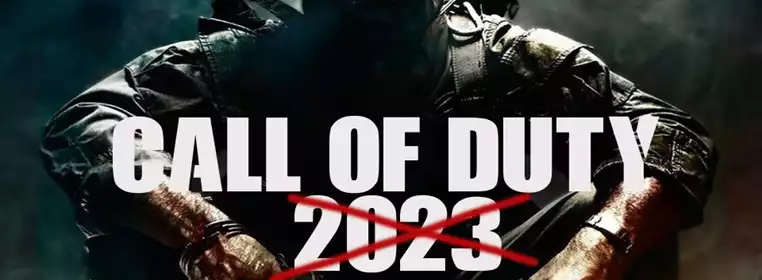How Would No 'CoD 2023' Affect The CDL?

On February 22nd, 2022, a report revealed the 2023 instalment of the Call of Duty franchise would be pushed back until 2024, much to the shock of franchise fans. Since 2005, Activision Blizzard has published a new title to PC and consoles, complete with a new single-player campaign, new multiplayer, and co-op experiences.
While the majority of the community is salivating at the prospect of a two-year cycle for 2022’s Modern Warfare II, several members of the competitive Call of Duty scene let out a collective groan over the possibility of two seasons on an Infinity Ward title. It’s no secret that the developer provides minimal support for Call of Duty esports, with none of its releases featuring any kind of ranked playlist.
With Treyarch not expected to launch its next project for another two years, a delay marks an interesting time for the competitive scene. Could two seasons on the same title provide some kind of stability or could it lead to potential player unrest if Modern Warfare II doesn’t live up to expectations?
Potential Stability
One unique feature that separates Call of Duty from other competitive titles is that the game played changes every single season, meaning players must adapt to an all-new metagame in addition to new mechanics crucial for gaining an advantage over the opposition. If Modern Warfare II is a solid title for competitive matches, there’s every chance a level of stability can be achieved.
Rather than the arrival of a new title implementing a new set of rules and regulations, two years of competition on the same title prevents the need to overhaul what’s already in place. Instead of an entirely new game, the addition of brand-new maps combined with a widespread dose of weapon tuning to encourage a huge overhaul to the meta could distinguish one Modern Warfare II season from the other alongside preventing the game from turning stale from the perspective of the spectator.
In addition to the stability provided by the potential of two competitive Modern Warfare II seasons, the door for deep strategic depth would open. With additional time to perfect and refine in-game strategies, teams will get an opportunity to develop innovative ways to play whether it’s innovative grenade spots or unique methods to breach a Hardpoint hill.
While a lack of a new title may annoy some, the delay could well provide a platform for levels of gameplay never seen before due to the annual transition to a new game.
A Recipe For Disaster?
On the other hand, Infinity Ward’s track record for developing a game fit for competitive Call of Duty action is poor. None of its titles have included a ranked playlist of any capacity in addition to poor map design and questionable spawn logic that has filtered into Vanguard. The addition of doors in 2019’s Modern Warfare reboot along with the inclusion of Tactical Sprint was met with plenty of scepticism and if rumours are to be believed, further innovations are expected in Modern Warfare II.
If the innovations negatively impact competitive play in a similar fashion to its predecessor, the CDL could be in for two years of turbulence as it attempts to adapt the game to improve its viability for four-versus-four matches to take place in a somewhat balanced environment.
Positive News For Treyarch
The two-year development cycle has resulted in Call of Duty titles launching with numerous bugs and glitches impacting players, much to their annoyance. The pressure of delivering a new title every single year clearly hinders the quality of the product along with impacting those working tirelessly to launch a game that lives up to the incredibly high bar set by fans of the franchise.
Widely considered to be the producers of the best competitive Call of Duty titles, the delay to the 2023 title is music to the ears of Treyarch, which will have three years of development time. Call of Duty 2024 will be the first title since Black Ops 3 to benefit from longer development time, and fans of the esport and the casual game all know how good that game is.
Three years of development will enable Treyarch to find its form once more following a mixed reception to Black Ops Cold War which launched with such a small amount of content compared to the vast amount that arrived with the debut of Vanguard. Some may be disappointed with no fresh release in 2023, but 2024 could see the arrival of one of the very best titles suited to Call of Duty esports with plenty of maps, a ranked playlist available at launch, and most importantly, a game with minimal flaws.
Is The Delay A Sign Of The Future?
Soon after Microsoft announced it would acquire Activision Blizzard in a multi-billion dollar deal, the possibility of annual releases coming to an end quickly caught the attention of the community, meaning a two-year CDL season could become the norm. The delay to Call of Duty 2023 is likely to be a sign of the future, enabling developers to create a more polished product.
A game with fewer issues means the CDL can start the season much earlier than three months into its cycle, allowing the league to capitalise on the interest created with its launch. An earlier start equates to more interest on the product as we saw with the surprise launch of Halo Infinite. The delay can act as a reset button for the CDL, acting as a fresh start where focus on competition could result in interest being at an all-time high. Ultimately, the quality of Modern Warfare II will determine whether the impact on competitive Call of Duty will lead to eventual improvements or deal more damage on top of what’s already occurred.
